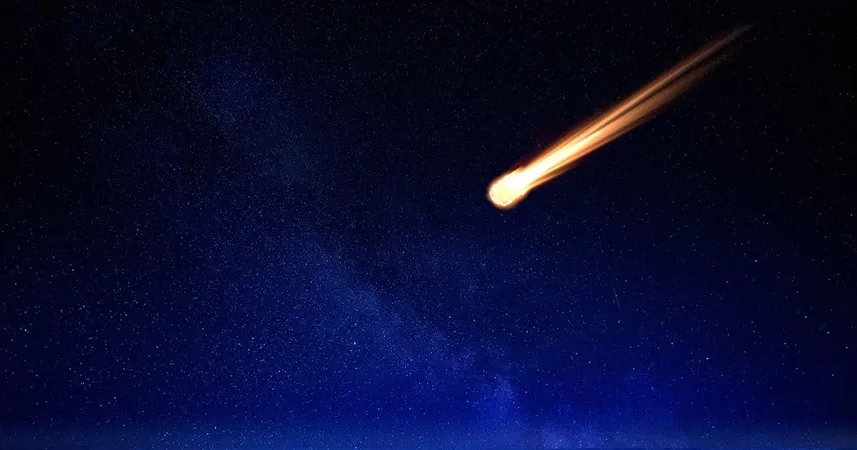
Unveiling the Mystery: Could 3I/ATLAS Be an Alien Artifact?
2025-09-10
Author: John Tan
A captivating cosmic spectacle is unfolding as the interstellar object known as 3I/ATLAS hurtles through our solar system. Astronomers are buzzing with excitement, especially Harvard astrophysicist Avi Loeb, who suggests this enigmatic visitor could be an advanced artifact from an intelligent alien civilization.
Commonly classified as a comet, 3I/ATLAS has garnered attention due to its intriguing characteristics. Recent observations from the Gemini South telescope in Chile confirm that its tail is growing longer as it nears the Sun, shedding dust and gas in its wake.
Yet, Loeb is skeptical about the comet theory. With 3I/ATLAS set to make its closest approach to the Sun next month, he urges NASA to utilize its Mars Reconnaissance Orbiter and Juno probe for a detailed examination during this unprecedented flyby.
Loeb posits, "If it is indeed a technological object, it might deploy mini-probes en route to Earth, manifesting as unidentified aerial phenomena (UAPs). We must remain vigilant about this tantalizing possibility," he shared in an interview with The Sol Foundation podcast.
The dimensions of 3I/ATLAS are astounding—up to 28.5 miles wide, making it over a million times more massive than previous interstellar visitors. "The sheer scale is improbable," Loeb asserts, citing the scarcity of materials available in interstellar space.
Moreover, the object's trajectory is unusually precise, bringing it near several planets, including Mars, Venus, and Jupiter. In a recent blog post, Loeb pointed out that it will come within just 1.67 million miles of Mars' orbit, a feat of remarkable orbital tuning.
However, Loeb remains mindful of the possibility of a more mundane explanation. "It could simply be a rock with icy features that evaporate as it approaches the Sun, in which case it would be classified as a natural phenomenon," he conceded.
Despite this, Loeb champions the importance of keeping an open mind towards the alien artifact theory. "An open-minded scientist delights in new discoveries while remaining humble. Nature is often more imaginative than we can comprehend, and we must not dismiss the idea of cosmic neighbors just because they don't conform to established beliefs," he emphasized.
As 3I/ATLAS continues its journey, all eyes are on the skies—will it hold secrets yet to be revealed?


 Brasil (PT)
Brasil (PT)
 Canada (EN)
Canada (EN)
 Chile (ES)
Chile (ES)
 Česko (CS)
Česko (CS)
 대한민국 (KO)
대한민국 (KO)
 España (ES)
España (ES)
 France (FR)
France (FR)
 Hong Kong (EN)
Hong Kong (EN)
 Italia (IT)
Italia (IT)
 日本 (JA)
日本 (JA)
 Magyarország (HU)
Magyarország (HU)
 Norge (NO)
Norge (NO)
 Polska (PL)
Polska (PL)
 Schweiz (DE)
Schweiz (DE)
 Singapore (EN)
Singapore (EN)
 Sverige (SV)
Sverige (SV)
 Suomi (FI)
Suomi (FI)
 Türkiye (TR)
Türkiye (TR)
 الإمارات العربية المتحدة (AR)
الإمارات العربية المتحدة (AR)